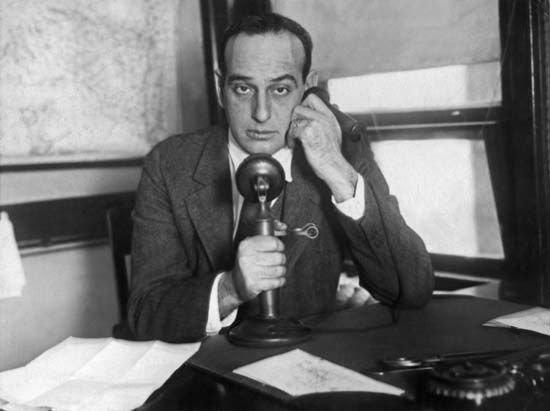Robert Moses wrote an Atlantic essay in 1962 in which he returned fire at his many critics just as his iron fist was losing its grip on New York City. The power broker argued, naturally, in favor of a metropolis based on automobiles and high-occupancy apartment buildings. An excerpt:
“To sum up, let me ask the Gamaliels of the city a few pointed questions.
By what practical and acceptable means would they limit the growth of population?
How would they reduce the output of cars, and if they could, what would take the place of the car as an employer of workers or as a means of transport in a motorized civilization?
If more cars are inevitable, must there not be roads for them to run on? If so, they must be built somewhere, and built in accordance with modern design. Where? This is a motor age, and the motorcar spells mobility.
Is the present distinction between parkways, landscaped limited-access expressways, boulevards, ordinary highways, and city streets unscientific? If so, what do the critics propose as a substitute?
Is mass commuter railroad transportation the sole and entire answer to urban street congestion? Is conflict between rubber and rails in fact irrepressible? Are there not practical combinations of public, quasi-public, and private financing which can solve the riddle? And what of the people who prefer cars and car pools and find them more comfortable, faster, and even cheaper than rails?
If a family likes present city life, should it be forced to live according to avant-garde architectural formulas? Do most professional planners in fact know what people think and want? The incredible affection of slum dwellers for the old neighborhood and their stubborn unwillingness to move are the despair of experts. The forensic medicine men who perform the autopsies on cities condemn these uncooperative families to hell and imply that they could be transplanted painlessly to New Delhi, Canberra, Brasilia, and Utopia. We do not smoke such opium. We have to livewith our problems.
Is it a mark of genius to exhibit lofty indifference to population growth, contempt for invested capital, budgets, and taxes; to be oblivious to the need of the average citizen to make a living and to his preferences, immediate concerns, and troubles?
What do the critics of cities offer as a substitute for the highly taxed central city core which supports the surrounding, quieter, less densely settled, and less exploited segments of the municipal pie? Have they an alternative to real-estate taxes?
Pending responsible answers to these questions, those of us who have work to do and obstacles to overcome, who cannot hide in ivory towers writing encyclopedic theses, whose usefulness is measured by results, must carry on.”
••••••••••
A rarely shown 1953 interview with Moses on the Longines Chronoscope:
Tags: Robert Moses

